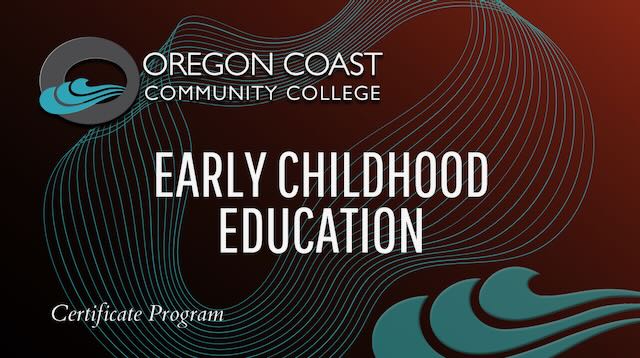Early Childhood Education
Investing in Children
The early years shape a life. Research in child development has demonstrated that during the years from birth through 6 years old, important growth occurs in all domains, including social, emotional, cognitive, linguistic and physical development. The early childhood educator – whether a teacher, family or child care provider – plays a critical role in fostering children’s development and investing in their future.
{Click to View the ECE Program Online Brochure}
In OCCC’s Early Childhood Education program, we offer you the skills you need to succeed in the world of early childhood development, early childhood education centers, preschool programming, infant and toddler care, and family child care programs. Employment opportunities may include teaching assistant, child care aide, lead teacher, family child care provider and program director.

Intended Learning Outcomes
Early Childhood Education Program Outcomes
Additional Information
Prospective Student Information
Early Childhood Education Admission Checklist
Observation and Practicum Requirements
Prior Learning Credit Information
Early Childhood Education Scholarship Application
Plan how you’ll pay for college
Curriculum Map
Early Childhood Education Curriculum Map and Costs
Career Information
Early Childhood Education Career Pathways
Careers

Early Childhood Education graduates will acquire:
- Excellent communication skills, including excellent verbal and written English skills
- Understanding of their role as professionals in the field
- Ability to implement observation and guidance techniques to address children’s needs
- Ability to develop and plan activities and environments appropriate for individual children and for diverse groups of children and their families.
What will I do on the job?
Teachers and home care providers plan the environment and develop suitable learning experiences for young children in care and education situations. They supervise play and meet physical needs of small children. They assess children’s progress and discuss a child’s development with parents. As a specialist, you will work closely with young children and their families as the children learn to communicate, solve problems and work and play together. It will be your job to help provide an environment that fosters growth and self-esteem – a place where children can thrive. Early childhood graduates may also work in related fields such as child care resource and referral.
What skills will I use on the job?
OCCC’s program is designed to develop your ability to understand children and their families; observe and assess children; guide children individually and in groups; plan and implement activities; develop and maintain environments where children will thrive; supervise assistants or other teachers; communicate with parents daily and in formal conferences; refer families and children with special needs to appropriate community resources; provide nutritious snacks; identify and correct safety hazards; and maintain children’s and a center’s records.
Who will hire me?
Graduates of this program are hired by Head Start programs, day-care centers, parent cooperative preschools, private preschools and kindergartens, and resource and referral agencies. Public schools hire graduates as teaching assistants and parents hire graduates as nannies. Most jobs are located in or near cities. Some graduates also start their own in-home childcare and preschool programs.
Contact us for Additional Information

Oscar Juarez
Early Childhood Education Faculty
Early Childhood, Faculty
Oscar Juarez
MA Education-Curriculum and Instruction, University of Texas at El Paso BA Bilingual Early Childhood Education, New Mexico State UniversityDisabilities
Oregon Coast Community College is committed to providing equal opportunities for students with disabilities throughout the College community. Students with documented disabilities are entitled to reasonable accommodations under Section 504 of the Rehabilitation Act of 1973 and the Americans with Disabilities Act of 1990. Our philosophy is to maximize your independence and self-reliance, providing a variety of support options to assist you in achieving your educational and/or vocational objectives. To receive services, you must submit documentation of your disabling condition(s) to the Vice President for Student Affairs. To initiate support services, please contact the Vice President for Student Affairs at 541-867-8511. Students are responsible for requesting, in a timely manner, accommodation and documenting the nature and extent of their disability.
Equal Opportunity and Non-Discrimination
The College prohibits unlawful discrimination based on race, color, religion, national origin, sex, marital status, disability, veteran status, age, sexual orientation, or any other status protected by federal, state, or local law in any area, activity or operation of the College. The College also prohibits retaliation against an individual for engaging in activity protected under this policy, and interfering with rights or privileges granted under anti-discrimination laws. In addition, the College complies with applicable provisions of the Civil Rights Act of 1964 (as amended), related Executive Orders 11246 and 11375, Title IX of the Education Amendments Act of 1972, Section 504 of the Rehabilitation Act of 1973, Americans with Disabilities Act of 1990 (as amended), Uniformed Services Employment and Reemployment Rights Act (“USERRA’), and all local and state civil rights laws. Under this policy, equal opportunity for employment, admission, and participation in the College’s programs, services, and activities will be extended to all persons, and the College will promote equal opportunity and treatment through application of this policy and other College efforts designed for that purpose.
Persons having questions about equal opportunity and nondiscrimination should contact: Director of Human Resources, Joy Gutknecht.
Questions can also be mailed to their attention at 400 SE College Way, Newport, OR 97366



